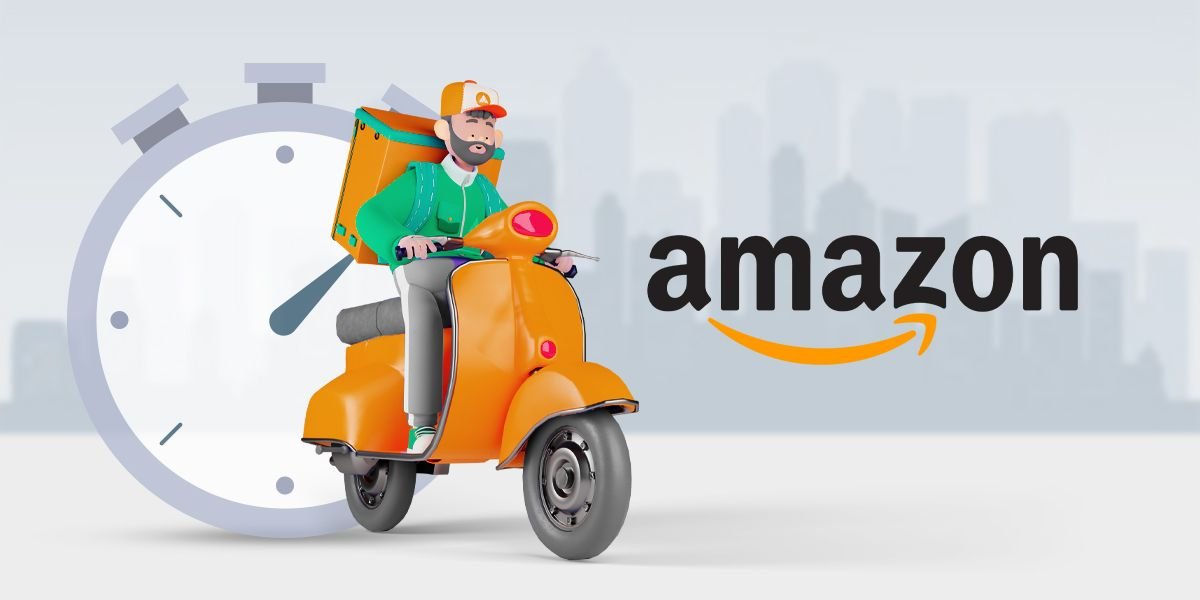Summary :
- Amazon Now debuts in 3 Bengaluru pin codes with 10–15 minute delivery promises.
- First phase targets essential groceries, snacks, personal care, and beverages.
- Amazon sets up local dark stores and integrates Prime for seamless logistics.
- Enters direct competition with Blinkit, Zepto, Instamart, and Flipkart.
-
Bengaluru residents like Rajesh Kumar already adjusting daily habits around the new speed economy.
In a city already brimming with delivery apps promising groceries in less time than a coffee break, Amazon has finally arrived at the party—but with a tone of quiet precision rather than noise.
After nearly a year of pilots, hiring experts from India’s quick commerce ecosystem, and quietly setting up local infrastructure, Amazon Now—the company’s ultra-fast delivery initiative—has officially launched in select areas of Bengaluru.
The promise? Essentials to your door in under 15 minutes. No promo codes. No flash sales. Just reliable, Prime-integrated speed. In a space dominated by Blinkit’s yellow backpacks and Zepto’s black bikes, Amazon has entered the race with its own language: trust, scale, and timing.
The Strategy Behind the Sprint
This is not Amazon’s first attempt at local instant delivery. Years ago, its experiments with Amazon Prime Now fizzled out amid scale issues. But the market has evolved—and so has the company.
Today’s rollout of Amazon Now is backed by:
- 10–15 strategically placed dark stores, acting as micro-warehouses
- Curated inventory, tailored to high-frequency essentials like milk, eggs, snacks, and sanitary products
- No deep discounting, instead leaning on Prime loyalty and free delivery above ₹199
- No surge fees, even during late hours—a bold departure from competitors
“We’re not just joining the race to be fast. We want to be consistently useful, not momentarily viral,” said a senior Amazon executive involved in the launch.
Their aim is to quietly scale, test the density model, and avoid the cash-burn trap that has plagued others in the quick commerce sector.
Living the Promise: How It Feels on the Ground
For 33-year-old software engineer Rajesh Kumar, Saturday mornings used to mean early trips to the supermarket. But last weekend was different.
“I needed orange juice, eggs, and detergent,” he said. “Instead of driving out, I just opened Amazon. It was all at my door in 11 minutes.”
That morning, Rajesh sat sipping tea as his grocery bag arrived—plastic-free, barcoded, and delivered by a polite man who simply said, “Amazon Now, sir.”
The transaction was simple, but the emotional impact was telling: trust meets convenience. “I didn’t feel like I was gambling with some new service. It was Amazon. And they just got faster.”
A Crowded Track with Fast Rivals
Amazon’s arrival in quick commerce comes as rivals double down. Blinkit, backed by Zomato, is now delivering iPhones and suitcases along with pulses. Zepto, founded by Stanford dropouts, is targeting IPO in 2025. Swiggy Instamart continues to subsidize prices in key zones. Flipkart, meanwhile, has ambitious plans for 800 dark stores by next year.
What sets Amazon apart, however, is restraint. While others fight discount wars, Amazon bets on infrastructure, brand equity, and Prime loyalty. It may not offer ₹1 mangoes, but it promises your weekend smoothie ingredients will arrive before the blender warms up.
“It’s not about being first. It’s about being the most dependable,” said a former Dunzo executive, now working with Amazon’s ops team in Bengaluru.
The Road Ahead: Scaling Smart or Fast?
Quick commerce is notoriously unforgiving. Margins are thin, volumes must be dense, and last-mile execution must be flawless. Amazon’s challenge will be scaling from these 3 Bengaluru pin codes to a national presence—without burning millions or losing its core customer promise.
But in this tightly wound, 10-minute race for India’s wallets, Amazon’s late entry might just be its greatest strength. It watched others stumble, learned quietly, and now appears ready to play the long game—with confidence and control.
And for people like Rajesh Kumar, it’s already a win.
“Now, I don’t just expect speed,” he says, smiling. “I expect Amazon speed.”



